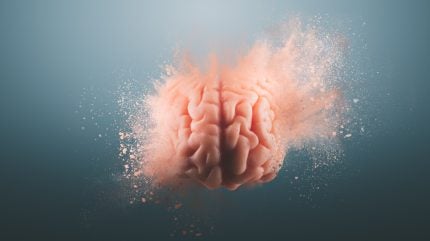
Nexalin Technology has revealed positive data from a clinical trial that evaluated its neurostimulation device in veteran patients with combat-related mild traumatic brain injury (mTBI).
The randomised, double-blind, placebo-controlled trial tested the company’s Gen-2 transcranial alternating current dynamic frequency stimulation (tACS) compared to sham. A total of 24 veteran patients received twelve sessions of active or sham tACS over four weeks.

Discover B2B Marketing That Performs
Combine business intelligence and editorial excellence to reach engaged professionals across 36 leading media platforms.
The data, which was unveiled at a meeting of the US government’s Biomedical Advanced Research and Development Authority (BARDA), demonstrated that tACS led to a reduction in pain compared to the sham group. The group receiving Nexalin’s treatment also showed reduced post-concussive symptoms.
As part of a further analysis of magnetoencephalography (MEG) data, Nexalin went as far as to say that its device could be healing the patients’ neurons and restoring brain function.
mTBI is a significant health burden amid military personnel. Chronic post-concussion symptoms include deficits in memory, sleep, and cognition, among others.
Nexalin’s CEO Mark White said: “We believe the data we have reported provides evidence of the potential clinical efficacy of our neurostimulation device on improving mental healthcare outcomes among patients affected with mTBI, without any significant adverse effects.”

US Tariffs are shifting - will you react or anticipate?
Don’t let policy changes catch you off guard. Stay proactive with real-time data and expert analysis.
By GlobalDataNexalin’s technology uses non-invasive deep intracranial frequency stimulation to target deep mid-brain structures. The first generation of Nexalin’s range was approved by the US Food and Drug Administration (FDA) for the treatment of insomnia in 2003.
The company recently announced a third-generation 15mA [miliamp] neurostimulation device called HALO Clarity and is in talks with the FDA over pre-submission activities.
Nexalin’s current tACS device was approved by China’s National Medical Products Administration (NMPA) for the treatment of insomnia and depression.
The global neuromodulation device market is expected to reach $10.7bn in 2030, up from $9bn last year, according to a report by GlobalData. The deep brain stimulation device market segment is forecast to constitute $1.9bn of the market by 2030.
Other clinical companies in the neurostimulation space include Nalu Medical, which raised $65m in Series E financing this year, and Onward Medical, a company developing devices to treat spinal cord injury patients.
White added: “We look forward to advancing the technology within the military and government agencies to bring hope to countless numbers of military and civilian patients impacted by these often-debilitating conditions in the United States and around the world.”





